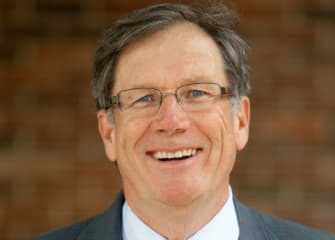
Francis Kirley
Click here for Part I, Part II & Part IV
Francis Kirley heads Nexion Health, one of the largest nursing home chains in the country. His journey to the top has rarely been easy but always self-made and eventful.
He first fashioned a “fabulous childhood” out of being an orphaned teenager, started work at a pharmacy and put himself through pharmacy school, and became an interim administrator of Martha’s Vineyard Hospital when just 27. Kirley went on to business school, and turned a job loss into exciting and successful entrepreneurship.

“I got to Martha’s Vineyard because a good friend of mine bought the stamp to send my resume to Martha’s Vineyard to apply as a director of pharmacy position,” Kirley recalled in an interview with citybizlist’s Edwin Warfield, underplaying his own proactive role.
In a career spanning over three decades in healthcare, Kirley has learned to be “leaner, meaner and more efficient,” in order to survive. That philosophy has served Nexion well, besides positioning it well for the future.
“We’re looking at acquisitions on a one-by-one basis. Some of our landlords, Omega Healthcare has talked to us about other possibilities. We will add assets that bring synergy and a creative potential to the financial viability. I’m excited for the next five years,” Kirley said in the interview.
EDWIN WARFIELD: Can you tell us of your relationship with investors?
FRAN KIRLEY: With my investors and with our first transaction with Nationwide Health Property, we were able to pick up 21 buildings, which was great. We then picked up a couple of small deals with them of additional four to five in Texas, predominantly in Texas. Our investors asked us to when Integrated went through their bankruptcy—they had a portfolio of 14 assets in Louisiana—they asked us to take on the management of those, which we did, and we still operate those today.
In 2006, where they were able to eventually sell those to Omega Healthcare Property, a Maryland-based public REIT and we grew to be like 55 properties and not that bigger is better. We struggled with the size, size in geography, and so over the years we looked at transactions. We were able to again when the Litchfield IHS separation was occurring there was a building in Colorado that Litchfield owned. It was up for sale. We put a bid in, a non-contingent bid, we closed it in two days and because I operated the building for six years, I knew the building well. We got one building in Colorado which we own, that was our first owned building, and so over the years we stayed focused in Texas.
Texas is a challenging state because it ranks pretty low in its Medicaid rate. It does not have any annual increase Medicaid. Legislative session comes every other year, so it doesn’t have the consistency of some of the other states. Louisiana, a good state, good employees. I still have employees that worked for me in 1995. They still work in those buildings. Great work ethic, great culture, great environment. It is a seal one state so there is not a lot of new buildings and with Omega we were able to make significant improvements in some of those assets, which we have over time and we have added a couple of onesie-twosies there along the way with Omega.
We grew, we got to be 55 and then we eventually got down, we closed buildings that were in markets that were rural markets or in highly competitive markets where we could not be competitive, there were too many assets or we sold them off on onesie. We got to recently in 2015, to be about 40 buildings. The original lease with Nationwide Health Property, which went from Nationwide Health Property to Ventas to another capital care lease was up for renewal. We decided not to review 11 of those assets.
Effective on February 1st, we were down to 26 skilled nursing facilities and one assisted living, and the assisted living is a new acquisition that we bought. It is in between two of my SNFs in Louisiana. We bought that in Morgan City, Louisiana and it has turned out to be a great synergistic property and that we took that when it was 65% occupied, now it is 100% occupied with a waiting list and again because I think we are able to bring quality to that product line that they hadn’t had before.
Today, we are 26 facilities, one in Colorado, 13 in Louisiana, and 12 in Texas. Relationship is pretty much Omega Health Care. We are a leasehold company where Omega owns 19 of those properties, Care Capital Partners own 4 and Nexion owns 5. We have been able to add some new buildings along the way. We have some CONs or we replace buildings, we are able to buy them, so we have a pretty good mix of owned and leased assets at this point.
EDWIN WARFIELD: Explain your strategy. Is chain ownership growing?
FRAN KIRLEY: We really feel that our focus has not changed back from 2001 where quality was the main driver and financial viability. The industry has changed dramatically over the years. In 2001, the buildings were all 100% occupied with long-term care patients and small amounts of Medicare. Today, we see that mix being Medicaid is really a dwindling population for us because there is so much competition on the Medicaid side for age and home and all those competitive services, assisted living, etc., and so we have seen the long-term care patients dwindle in terms of numbers and we have seen much more growth on the Medicare rehab side of the business and that is where our focus is.
We would consider ourselves to be a quality post acute care provider where we do short-term rehab, where people come to us, average length of stay, so it could be 70% of all my admissions go home, which is statistically today above average. In 2000, probably 5% went home, and so the business has changed pretty dramatically in the 16 years we operated. As well as the quality of the product you house these people in, the physical plans have to change. We used to have four bed wards, now we have all private rooms, semi-private rooms, suites, etc., because the population wants privacy and they want the ability to have mom or dad or my sister, brother in a place where they are going to have some privacy, they can have Internet services, they can have their own televisions, they can get good quality food products and get home as quickly as possible, so the business has changed pretty dramatically over the last 16 years and I think as a company being smaller, leaner and more effective, we have been able to hopefully position ourselves for the next ten years as we grow.
Connect with Fran on LinkedIn
Sponsored by:
Founded in 1993, WMS Partners is the only independent multi-family office in the Baltimore area that isn’t associated with a brokerage firm, bank or trust company. Our team of approximately 50 professionals and 14 owners spanning three generations assists in the direction of our client’s financial goals and objectives and oversees in excess of $3 billion in assets.
As our client’s advocate and central point for their financial affairs, we work pro-actively with service providers, including accountants, attorneys, consultants, insurance professionals and philanthropic advisors. We are large enough that we provide exposure to many unique ideas and strategies in the investment, estate, tax, financial advisory and risk management arena; but small enough to provide discreet, pro-active individualized guidance.


Edwin Warfield, CEO of citybizlist, conducts the CEO Interviews.
If you're interested in reaching CEOs, please contact edwin.warfield@citybuzz.co
Connect on LinkedIn
















